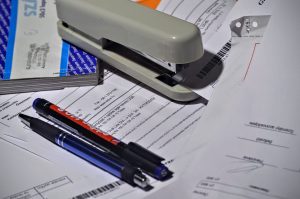Getting extra responsibility at work is generally regarded as a good thing. And with more responsibility comes more money, right? If however you’ve been asked to take on a document verification role in your organisation, there’s a lot to keep in mind. The sorts of documents you’ll be looking at are many and varied. There are lots of reasons why organisations might ask staff to provide documents. The most common reasons are to verify identity, or when the role needs the employee to apply for a DBS check. If you’ve been asked to take the role on, don’t panic. There are some easy guidelines to help you get it right. Your employer will probably provide training too. And if you’re on the other side of the table, our guidelines might help you understand what you’re being asked.
Why do employers have a document verification process anyway?
 Employers have a lot of hoops to jump through. It’s their job to make sure that people are being employed legally and are who they say they are. Taking people at their word is a fairly risky strategy. Employers cover themselves from legal action by asking for evidence, and proof. At a very basic level, employers have to make sure that their employees are in the UK legally, and have the right to work. If the role requires a police check, then they’ll be asking to see proof of address too. Some roles in financial services might ask for a credit check. If you’re not sure why your employer is asking for your passport, birth certificate and utility bills then ask. Good employers are open and transparent about the process.
Employers have a lot of hoops to jump through. It’s their job to make sure that people are being employed legally and are who they say they are. Taking people at their word is a fairly risky strategy. Employers cover themselves from legal action by asking for evidence, and proof. At a very basic level, employers have to make sure that their employees are in the UK legally, and have the right to work. If the role requires a police check, then they’ll be asking to see proof of address too. Some roles in financial services might ask for a credit check. If you’re not sure why your employer is asking for your passport, birth certificate and utility bills then ask. Good employers are open and transparent about the process.
Current and Original
If you’re the person doing the checking, then the two key concepts are current and original.
- Current – you should only accept current or recent proof of identity. That means a valid passport, not one which has expired. If you’re looking at bank statements or bills, they should be within the last three months. Documents like P60 or council tax bills should be the last issued.
- Original – ask to see the original documents. Not photocopies or print outs from the internet. If you want to keep records, make your own copies and the store them securely. If you’re suspicious about the authenticity of a document then check, don’t just assume it’s genuine. Ask to see an extra form of ID if you need to.
Matching
The other main concept is matching details. It sounds very basic, but check that the details on the documents you are given match the employee’s form. Double check any anomalies. Everyone makes mistakes and it’s easy to transpose letters or make spelling mistakes in online forms. You should also check that the employee matches the photo on their ID. If there’s any doubt, do further checks. If the documents were issued overseas, check that they’re valid for the check you are doing. For example, in DBS checks, some documents can only be accepted if they were issued in the UK. Foreign equivalents aren’t accepted.